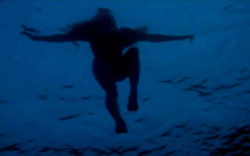Is there a word for the illicit joy found in doing something you know you’re bad at? I don’t mean the joy found in improvement, in finding a gap in your ability and steadily growing that ability; I mean the opposite: Continuing with activities despite knowing you’re bad at them, with no expectation of getting better.
I am surrounded by highly competent people. Some have perfected the activities I flounder in. They collect skills the way I pick shells up on the beach: with ease. They display them proudly for the rest of us to admire. With research and practice, they sharpen their gaze to collect the most prized specimens as I meander aimlessly along the shoreline.
I know the satisfaction of improvement, but I resist the unquestioned assumption that we should all strive towards it relentlessly. Perfectionists that I know, some of those highly competent people, often won’t persist in something they cannot conquer—or won’t even attempt the activity in the first place.
Some things I am really bad at include: couples-dancing, basic bike mechanics, drawing, speaking French and puzzles. There are many, many more, but these are among the ones I enjoy sucking at the most. Sustained efforts in these activities have proven that they are not in my wheelhouse. To engage in them means to court humiliation and risk bruising my self-esteem. Yet I persist. Possibly I will get better; it’s not that I don’t want to. I want to grow and learn—but I tire of striving, of making enjoyment of the activity result dependent. Striving towards improvement, I lose some of the beauty of play.
Our cultural obsession with competition and production often puts the kibosh on play. Animals and children coax out our playful selves. At this point in my life, I have ready access to neither, but being older I also don’t care as much what people think of me, which is an essential asset for play.
I have a friend who lives in the mountains and is a serious mountain biker. He confessed to me: “Sometimes when I’m biking, I suddenly realize… I’m just enjoying myself!” He said this with disgust. Enjoyment meant he wasn’t pushing himself hard enough. Enjoyment was a distraction. It was such a contrast to my approach to biking that I laughed out loud. When I’m on a trail in the woods, I want to be as aware of the beauty of my surroundings as I safely can be. I don’t want to judge his motivation, but I keep thinking this is a perfect example of not seeing the forest for the trees. It’s a reminder to me to stay present.
“Being requires accepting oneself, staying within oneself and not doing to prove oneself. It is a discipline that is accorded no applause from the outside world, it questions production for production’s sake. Politically and economically it has little value, but it’s simple message has wisdom: If I can accept myself as I am, and if I am in harmony with my surroundings, I have no need to produce, promote, or pollute, to be happy. And being is not passive, it takes focused awareness.” Maureen Murdock, The Heroine’s Journey
Being takes work. But the more we can be, the more we can relish playtime.
More being, less doing, tops my list of goals for the new year. I’ll probably be awful at it, but I plan to persist. Play is essential to our mental health; it shouldn’t be a luxury, yet I realize it is not available to everyone in equal measure. I resolve to stop taking my opportunities to play for granted. I do not resolve to “play better.”
If there is a word for the illicit joy found in doing something you know you are bad at, it’s probably a French word. I won’t be able to pronounce it, but I look forward to saying it anyway, as soon as one of my highly competent friends tells me what that word is.
Like what you just read? Support Flagpole by making a donation today. Every dollar you give helps fund our ongoing mission to provide Athens with quality, independent journalism.










